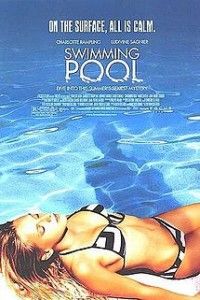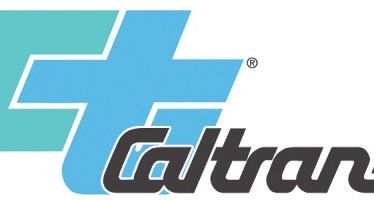Swimming pool regs could kill summer fun
May 16, 2012
By Katy Grimes
With cities all over the state closing community swimming pools because of budget cuts, a California lawmaker is pushing a bill requiring owners of public swimming pools to employ a “pool operator.”
California politicians have made it very clear that the residents of the state are not capable of managing their own affairs or those of their children and families. Consequently lawmakers have passed bans on smoking and plastic bag use, require fitted sheets in hotels, demanded mandatory breaks periods for babysitters, imposed regulations on fast food, required California public schools to serve breakfast, lunch, snacks, and dinners, and have even written laws requiring mandatory spaying and neutering of pets.
The pool police
AB 1726, by Assemblyman Michael Allen, D-Sonoma County, “establishes the Public Pool Health and Safety Act of 2012 which requires an owner of a public swimming pool, to employ at least one qualified pool operator,” according to the bill analysis.
But hiring a pool operator isn’t enough; the so-called pool operator must complete and pass a 14-hour pool health and safety course, register with a state agency, and pay a fee to that agency.
The “agency” referred to in AB 1726 is the State Department of Public Health, which already is tasked with supervising the sanitation, healthfulness, and safety of public swimming pools. Existing law already requires county health officers to enforce the public health department regulations.
In a not-so-subtle attempt to expand state government even more, the bill states that because “every year thousands of swimmers become sick from contaminated water, are injured from improperly maintained pools, or drown because of inadequate or unenforced pool safety measures,” more regulation is needed for the 65,000 swimming pools, wading pools, water attractions and interactive fountains in California.
The 14-hours of “pool operator” instruction must include training about “disinfection, water chemistry, water clarity, water temperature, operation and maintenance of mechanical systems, health and safety, including recreational water illness prevention, risk management, record keeping, chemical safety, entrapment prevention, electrical safety, rescue equipment, injury prevention, drowning prevention, barriers, signage and depth markers, facility sanitation, and emergency response; and, regulations, aquatic facility types, daily or routine operations, preventive maintenance, weatherizing, aquatic facility renovation and design, heating, and air circulation.”
When the training is completed, the pool operator will be a qualified Emergency Medical Technician, engineer, pool building contractor, chemist and lifeguard.
Lawmakers must be desensitized to even consider this bill at a time when the state has a $16 billion budget deficit and 11 percent unemployment. And California lawmakers continue to receive highly negative job ratings. According to the February 25 California Legislature approval ratings by Field Poll, “[T]hree times as many voters disapprove (64 percent) of its performance as approve (22 percent).”
AB 1726 originally would have established new state regulations only for the operation of swimming pools in rental housing communities, but was amended after Apartment Association groups opposed being singled out by the bill. The recently adopted amendments now exempt rental housing from its provisions, and define a “public swimming pool” as:
a) It is not a private pool.
b) It is operated by a public entity or is a place of public accommodation.
c) It is not a pool that is located within a public lodging providing no more than 15 rooms for public accommodation.
The California Hotel and Lodging Association and the California Association of RV Parks and Campgrounds oppose AB 1726 and see it as unnecessary “as both the market and current practice police the sanitary conditions of pools.” The RV Association also points out the certification course is costly at more than $400, and that the bill’s sponsor, as a certification training course provider, stands to financially benefit from the new training requirement.
The sponsor of the bill is the National Swimming Pool Foundation, which claims that AB 1726 “is necessary to help prevent drowning, injuries and the spread of illnesses at public swimming pools and spas by ensuring that all public pools are maintained by well-trained pool operators.”
The National Swimming Pool Foundation offers the required 14-hour pool operator training and certification course.
Implications of the bill
Looking deeper into the bill reveals a much larger issue than just clean pool water. Taken out of the bill’s definition of a public swimming pool was federal Americans With Disabilities Act language: “‘Public swimming pool’ means a pool that complies with all of the following characteristics: (A) It is not a private pool. It is operated by a public entity or that is a place of public accommodation to which the federal Americans with Disabilities Act applies .
David Miller with Allen’s office said that the ADA protections still apply, and they only removed the language from this bill because protections are always changing.
This is true.
The Washington Examiner recently reported that the Obama Administration’s Department of Justice issued a new guideline on January 31 interpreting a provision of the ADA, that now requires all operators of publicly accessible swimming pools—including cities, homeowners’ associations, hotels, spas, and gyms—to install a permanent fixed lift for the disabled, estimated to cost between $8,000 and $20,000 each.
“All 300,000 public pools in the United States must install a permanent fixed lift,” the Examiner said. “The deadline for compliance is tomorrow, March 15. Call it ‘Poolmageddon.'”
This is very interesting because last week the the Senate Judiciary Committee held a hearing about a bill to curb ADA lawsuit abuses. A long line of ADA activists testified in opposition to SB 1186, and several told about being denied access to hotel and public swimming pools.
Sen. Bob Dutton, R-Rancho Cucamonga, and Senate President Pro Tem Darrell Steinberg, D-Sacramento, joined forces and coauthored SB 1186, designed to curb abusive ADA lawsuits in California. Most of the ADA activists were opposed to the bill. And as distressing as much of the personal testimony was, it seemed carefully scripted.
The Examiner reported, “Compliance with the rule requires pool owners to have a lift for each ‘water element’ in their facility. So if your local community pool also has a spa, both the spa and the pool must be ‘accessible.’ But if you have two spas, don’t worry, only one lift is required.”
Apparently, most of the businesses with swimming pool pools were led to believe that, as long as they had one portable lift available, they were in compliance. “Pool owners claim they were led to believe that, as long as they had one device that could be wheeled out whenever someone needed help getting into or out of a pool or spa, there would be no need intrusive permanent fixtures,” the Examiner reported.
But then the proverbial organic substance hit the electric wind machine when the Department of Justice more narrowly defined the ADA requirements, leaving as many as 300,000 swimming pools potentially out of compliance this summer.
Hotels, public swimming pools, gyms and all public pools, with only one lift for the disabled, are fearful of more “drive-by” ADA lawsuits. Ironically, these lawsuits are what Steinberg and Dutton are trying to put an end to.
You know how regulated the people of California are when the federal government, the state, and millions of hungry trial lawyers go after swimming pools.
Related Articles
Canada vs. California
John Seiler: Dan Walters had a good column comparing California to Canada. Both have similar-sized populations and economies. Yet, Canada
24 years of Caltrans well-drilling ignored laws; risked groundwater contamination
Sacramento County is threatening to fine Caltrans millions in taxpayer dollars for drilling hundreds of wells over a period of decades
DMV issues 400,000 licenses to unauthorized immigrants
The California Department of Motor Vehicles issued nearly 400,000 driver licenses to unauthorized immigrants from January through June, following the





